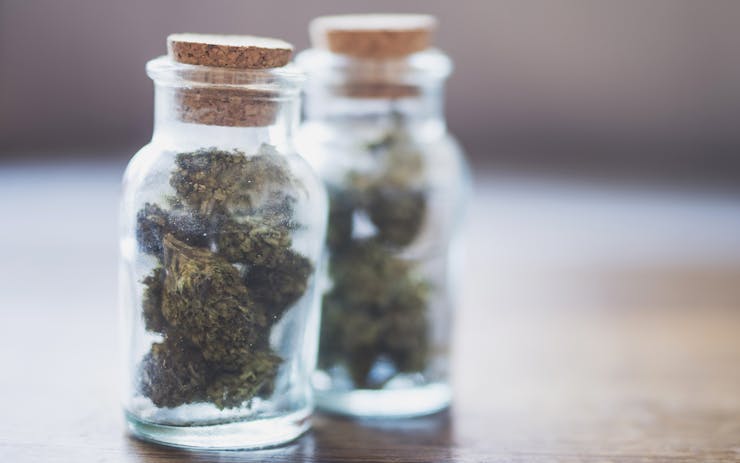Beginning Thursday, medical marijuana patients in Ohio will no longer face legal penalties for cannabis possession. It’s a major milestone in the state’s cannabis policy, but Ohio’s system is still a long way from workable. Holes in the new law are expected to push many into the state’s existing black market.
Under the state’s medical marijuana law, passed in June as House Bill 523, patients with qualifying conditions are allowed to keep up to a 90-day supply of medicine. Getting that supply is easier said than done. There’s currently no place to legally obtain cannabis in the state, and it’s not clear whether dispensaries in neighboring states, such as Michigan, will sell to Ohio residents.
“It is one of the first steps on a long road to developing a well-regulated system,” said Aaron Mitchell, spokesperson for advocacy group Ohioans for Medical Marijuana. “The real work of crafting the specific rules and regulations still lies ahead.”
Even if Ohio patients can find out-of-state access, they still have to get it home. Legal experts say bringing cannabis across state lines would violate state and federal laws as well as a key provision of the federal government’s hands-off policy for states with medical marijuana programs. Driving from an adult-use state such as Colorado — a suggestion offered by state lawmakers — would force patients to transit through states that still prohibit all cannabis.
“It’s the paradox we’ve been working with the whole time.”
Whether those risks outweigh buying from an illegal dealer at home is a matter for patients to decide. The law explicitly forbids growing at home, and dispensaries aren’t expected to appear for a year or more, maybe longer. The law requires the full system to be up and running within two years.
State Sen. Dave Burke (R-Marysville), told Cleveland.com that the law intentionally ignores the question of where people can access cannabis. That’s because the state Board of Pharmacy is tasked with establishing parameters for what products can eventually be sold in Ohio.
“It’s the paradox we’ve been working with the whole time,” said Burke, who said patients could get cannabis “wherever they can find it available — any source is allowed.”
Patients who do manage to access medicine face even further challenges. Cannabis possession is still illegal in Ohio, classified as at least a “minor misdemeanor.” Possession of up to 100 grams carries a $150 maximum fine and can result in a license suspension of six months to five years. Possession of more than 200 grams is a felony, carrying an eight-year mandatory minimum jail sentence.
The state’s medical marijuana law protects patients from those penalties, but it doesn’t exactly offer peace of mind. Even qualified patients can still be arrested and charged. Their patient status doesn’t make a difference until they show up in court.
The law requires individuals charged with cannabis possession to present what’s known legally as an “affirmative defense” in order to qualify for immunity. That entails submitting to the court a written statement from a physician that shows the patient has a qualifying condition, is an ongoing patient of that physician, and has been informed of the drug’s risks and benefits, among other requirements. Only then can charges be dismissed.
Ohio isn’t alone in governing patients this way. Other medical states, such as California, consider doctor-recommended use an affirmative defense. But many jurisdictions now offer ID cards or other documentation to help law enforcement officials identify patients and avoid unnecessary arrests and legal proceedings. Ohio has yet to establish such a system.
“We believe the state will adopt sensible rules and regulations to create a program that serves Ohio patients well in the long run,” said Mitchell of Ohioans for Medical Marijuana. “In the meantime, helping doctors and patients better understand the affirmative defense is an important early step.”





